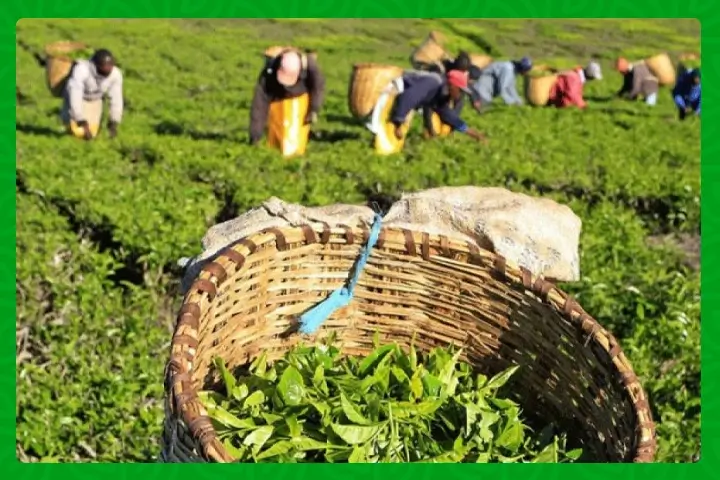
In the lush fields of Kenya, where the aroma of tea leaves dances with the breeze, a harsh reality is unfolding. The backbone of Kenya’s economy, its tea farmers, are grappling with a bitter aftertaste of low bonus payments. This predicament, reported by The Standard, is not merely a financial setback for the hardworking farmers; it’s a threat to the very essence of Kenya’s tea industry.
Unveiling the Root Causes: A Tale of Dollars, Fertilizers, and Reform Claims
Behind the scenes, the struggle is multi-faceted. Farmers, who toil tirelessly to nurture the tea that graces tables worldwide, find themselves using their meager bonuses to settle loans incurred for pluckers’ wages, farm inputs, and basic family needs. The culprit? A complex interplay of factors including the fluctuating dollar exchange rates and the unrelenting burden of nonsubsidized fertilizers.
Peering into the bonuses announced in 2022 and 2023, touted as ‘good’ payments, reveals a different story. These payouts, veiled as a result of tea reforms, carry the weight of government attempts to claim credit, while the truth remains transparent to industry players, especially the farmers who bear the brunt.
The Critical Role of Tea: A Symphony in the Key of Employment and Revenue
Kenya’s tea industry isn’t just about a beverage; it’s a lifeline for more than 10% of the population, offering employment and stability. Contributing a substantial 23% to forex revenues, it supports infrastructure development, medical facilities, and education within the plantation sector.
However, for the symphony to continue, the director at Kericho Gold Tea Company emphasizes the urgent need for government support in funding the Tea Research Institute. This powerhouse of knowledge enables farmers to enhance production without compromising quality, ensuring sustainability and prosperity.
Quality Concerns and Global Markets: Navigating Storms in a Teacup
Overseas alarm bells are ringing as purchasers express worries about the declining quality of Kenyan tea. Primary teas fetching less than a dollar could signal a looming threat to the very existence of tea factories. The remedy? Adequate funding for the Tea Board to actively participate in international trade fairs, explore joint ventures, and secure bilateral trade agreements.
At the global table of opportunities, funds for sustainable agriculture, poverty alleviation, and climate change mitigation are ample. The government, through the Tea Board, must guide farmers to tap into these resources, freeing up bonuses for their intended purpose rather than being diverted to projects eligible for alternative funding.
Diversification Dreams and Taxing Realities: The 2007 Task Force Report and Paper Woes
In the director’s vision lies the key to prosperity: implementing the 2007 Tea Industry Task Force report. Diversifying into high-value specialty teas is the pathway away from the conventional CTC teas, opening doors in markets like Russia, UAE, USA, Germany, and Iran.
However, a cloud hangs over this vision with the increased taxes on imported paper used by tea packers. The surge in import duty and VAT, coupled with excise duty, makes adding value to tea and exporting it a daunting challenge.
Nurturing Growth: Exploring Alternative Currencies and International Alliances
Amidst the storm, the director advocates for exploration, looking beyond the unavailable dollar for alternative trading currencies. This shift could be the catalyst needed to expedite exports and foster value addition.
In conclusion, as the golden leaves of Kenya’s tea fields sway in uncertainty, the call is clear. A harmonious blend of government support, international collaborations, and strategic reforms is essential to revive the spirit of Kenyan tea farmers, ensuring that their bonuses become a testament to their hard work, not a lifeline to survive.
Stay updated with the latest farming tips and agriculture industry news from Africa by subscribing to our newsletter. Don’t miss out on valuable insights and updates. Follow us on Twitter, LinkedIn, and Facebook to join our farming community and stay connected with us.



















